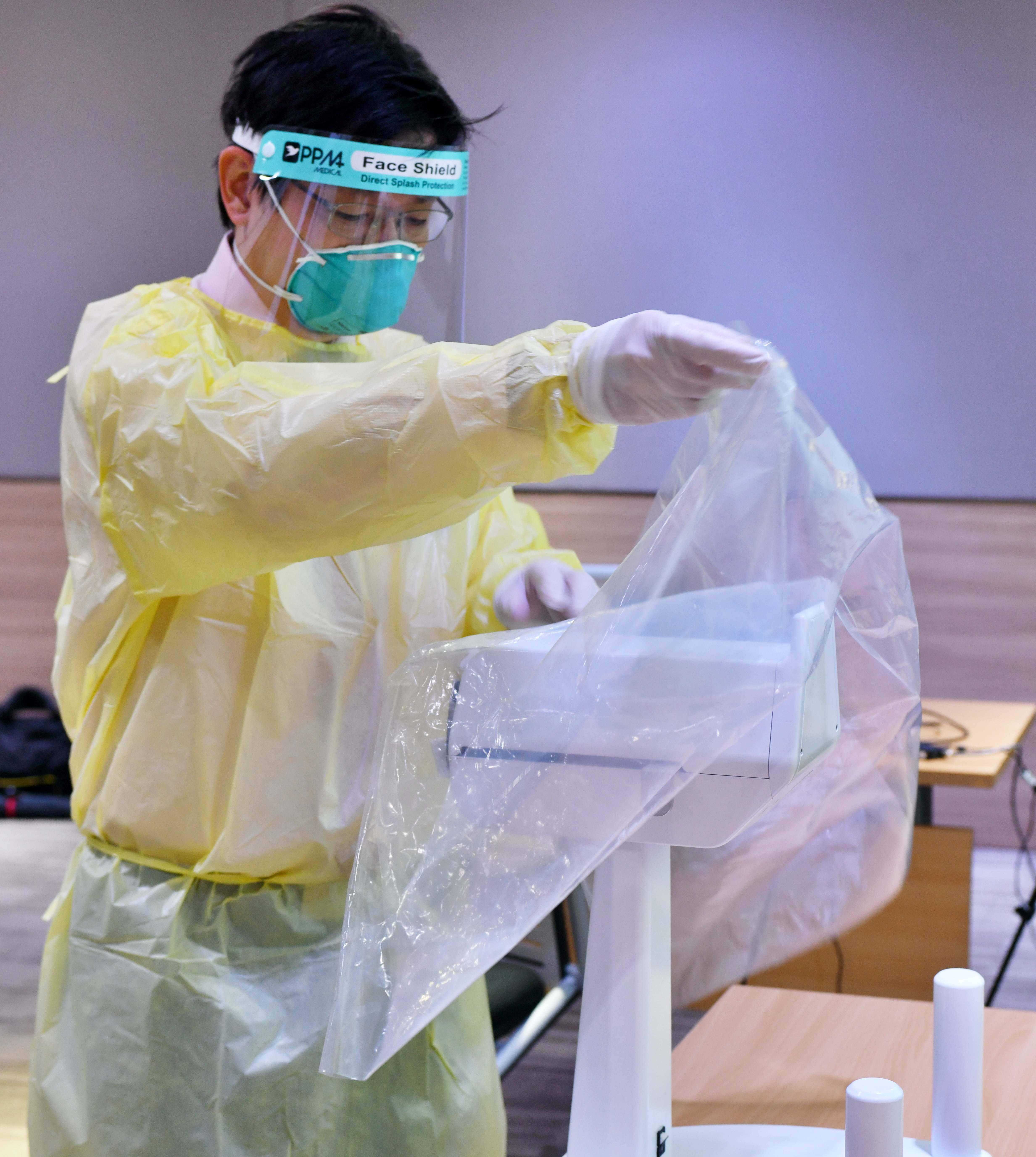SINGAPORE: A self-administered robot that automates the taking of COVID-19 swab tests has been developed in Singapore, helping to reduce healthcare workers’ risk of exposure to the coronavirus.
Clinicians from the National Cancer Centre Singapore (NCCS) and Singapore General Hospital (SGH) have partnered with Biobot Surgical, a firm specialising in medical robotics technology, to develop the SwabBot.
The robot helps address the limitations of manual COVID-19 swab tests by reducing the need for trained manpower, standardising the consistency of the swabs taken and “providing greater throughput” of swab tests as the robot does not suffer from fatigue, the three groups said in a press release on Monday (Sep 21).
READ: NUS researchers develop 3 new COVID-19 swabs to address shortage
SWABBING PROCESS COMPLETED IN ABOUT 20 SECONDS
The SwabBot is a “self-administered” robot, meaning patients can activate and terminate the process at will. When a patient is ready, they can use their chin to activate the robot and start the swabbing process.
The robot then extends the swab through the nose to the back of the nasal cavity, which is typically about 10cm from the nostrils.
“Even after many swabs, it retains the same gentle touch and precision as surgeons who perform very delicate procedures,” said Dr Luke Tay, a consultant with the Department of Vascular Surgery at SGH.
“Furthermore, the sample quality remains consistent even though nose structures can vary in size and shapes.”

To ensure the safety of the person getting swabbed, the robot has a built-in feature that retracts the swab stick if there is resistance when moving deeper into the nasal cavity, the press release said.
If someone is unable to tolerate the process, they can stop it by moving their head away from the robot.
The robotic swabbing process takes about 20 seconds to complete.
READ: NUS researchers develop smart suit for athletes powered by a mobile phone
MINIMISES RISKS FOR HEALTHCARE WORKERS
The SwabBot can also benefit healthcare workers who are conducting swab tests. It allows healthcare workers to assist with the swabbing process from a safe distance, said principal investigator Dr Rena Dharmawan, associate consultant in head and neck surgery from the Division of Surgery and Surgical Oncology at NCCS.
“Our team felt that we had to find a better way to swab patients to reduce the risk of exposure of COVID-19 to our healthcare workers, especially when patients sneeze or cough, during the swabbing process,” she said.
“It also helps to optimise resources as fewer healthcare workers are needed to do the swab collection, and less Personal Protective Equipment (PPE) is utilised,” she added.
“PAINLESS EXPERIENCE”
The SwabBot project was initiated in April, with the concept developed into a clinical prototype within three months.
“When we developed the SwabBot, we envisaged a self-swabbing device that could be deployed and used, similar to how self-checkout systems are now prevalent in the supermarkets,” said the CEO of Biobot Surgical Sim Kok Hwee.
“This should be especially effective for rostered routine testing and reduce manpower involved in swabbing operations.”
READ: Singapore scientists develop COVID-19 test method that delivers results in 36 minutes
To date, 75 patients have been recruited for the ongoing clinical trial to compare robotic swabbing to manual swabbing done by humans.
A migrant worker admitted to Bright Vision Hospital for COVID-19 was among those recruited for the clinical trial.
“The experience was painless, and the process of swabbing by the robot was very quick,” 49-year-old Mr Ariata Elizer Ellevera said.
SingHealth, the public healthcare cluster that NCCS and SGH are part of, has filed a patent for the technology together with Biobot Surgical, said the press release.
The robot has also been registered with the Health Sciences Authority as a Class A medical device and BioBot is in preparation for CE marking for global commercialisation.
BOOKMARK THIS: Our comprehensive coverage of the coronavirus outbreak and its developments
Download our app or subscribe to our Telegram channel for the latest updates on the coronavirus outbreak: https://cna.asia/telegram




